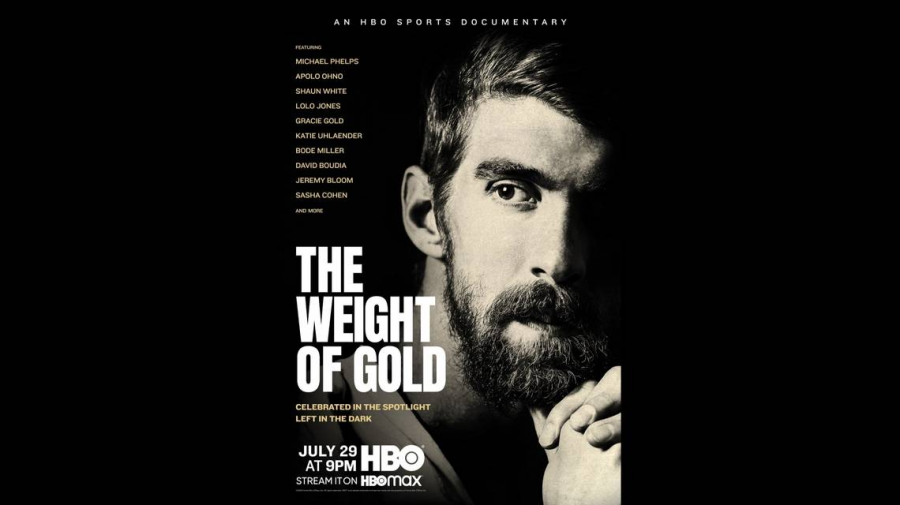The Weight of Gold
Recently, seniors at NAHS had an opportunity to watch the HBO Documentary, The Weight of Gold, during a virtual assembly. To say that someone is “worth their weight of gold” refers to someone’s value and usefulness. In particular, Olympic athletes are worth their weight in gold with their uncanny abilities to continuously break world records in their Olympic sports. Michael Phelps, a paragon among these athletes, talks about his struggles to reach the top.
As the documentary continues to unfold, the term “weight of gold” becomes one that describes the pressure on Olympic athletes as they earn gold Olympic medals. In other words, Phelps talks about the literal weight of the burdens on the pursuit for gold. The purpose of the premiere in this assembly was to show us that even titans of herculean proportions have their own struggles and mental stress, making the audience relieved about their common struggle.
Initially, the documentary introduced Team USA as they were being interviewed. Considering the impact of COVID-19 being introduced as it closed the Tokyo games, one would expect to hear them struggling with their realization of not being able to compete. Instead, Team USA talked about how they are only defined by their sport. They prioritize their sport above academics, families and relationships. They have an omnipresent fear of getting a silver or bronze medal knowing that companies will only reward and sponsor gold-medal Olympic athletes. DisneyLand named one of its streets as Michael Phelps Way in honor of the decorated swimmer.
With the pressure of training for the olympics, athletes are faced with mental as well as physical challenges that accompany training for world class competition. Although the athletes receive constant encouragement and accelerated training, there is one aspect that is missing – mental preparation during the olympics as well as after. Many athletes struggle to reach out for help because of the stigma attached to mental health. In essence, the journey to the top involves the survival of the fittest.
After speaking with other students who attended the assembly, the overall reaction was that the documentary was created well and had an impactful message. A few students commented that presenting more positive solutions for mental health struggles would have been more helpful. Either way, the message is clear: reach out for help when necessary. Even the most accomplished and celebrated people have weaknesses.
In retrospect, we are fortunate enough to not be upheld at such paramount, unrealistic standards and perceived as weak when reaching out to others. Because NAHS is aware of the mental toll of COVID-19 isolation for students, the documentary was presented to encourage NAHS students to never hesitate and always reach out for help. In short, it is “okay to not be okay” and this is what it means to go for and stay on gold.

